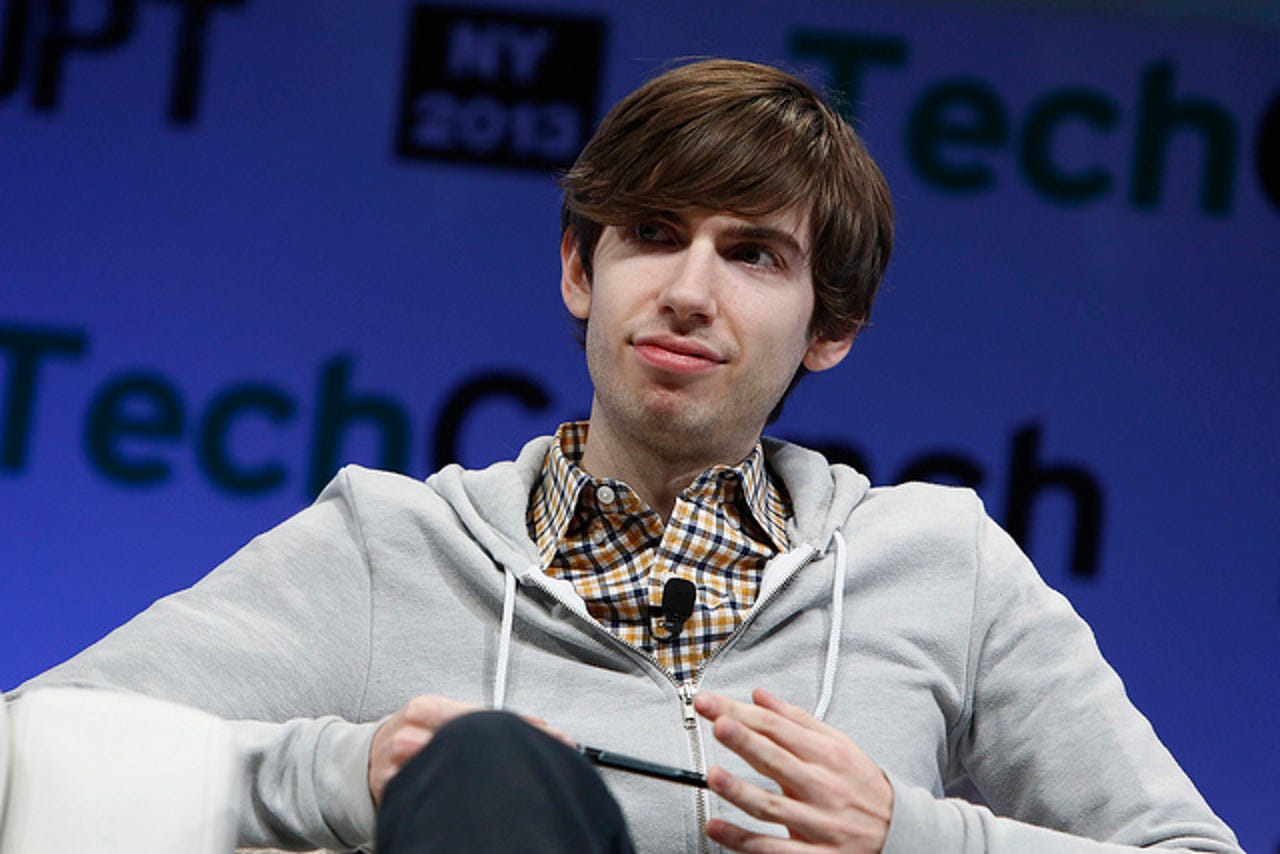The big lesson in the $1.1b Yahoo-Tumblr deal


I've been thinking quite a bit about the Friday rumor, and now Monday morning confirmation, that Yahoo will buy social microblogging network Tumblr for $1.1 billion. In typical tech industry fashion, the news spilled out in bits and pieces over the weekend. (No rest for the weary, as they say.)
The deal is interesting for a number of reasons.
First, it is the latest bold move by chief executive Marissa Mayer, made shortly after the 10-month anniversary of her installment in Yahoo's top spot. Whatever your criticisms of her, you can't fault her for trying to rock Yahoo's purple boat, and Tumblr's massive install base certainly gives the Sunnyvale, Calif.-based Internet stalwart the younger, more social audience it seeks for its advertising business.
Second, it is equal validation and capitulation for Tumblr founder David Karp, who successfully created a product that users—84 million of them, in just six years' time—adored but also a company (with 175 employees and $125 million in venture funding) that lacked revenue to match, totaling just $13 million in 2012. It is exceedingly difficult to create something that will catch on with millions of people worldwide; Karp did so with an unbroken focus on his end user. But it is twice as hard to do this in a way that turns a profit. (Karp famously said in 2010: "We're pretty opposed to advertising. It really turns our stomachs.")
Finally, Yahoo's acquisition of Tumblr demonstrates, as has been demonstrated with many M&A deals before this, that large companies—particularly public ones, awash in quarterly thinking—continue to have grave issues in fostering disruptive innovation. It is true that Mayer is on a tight timetable: the average length of a contemporary Yahoo CEO's tenure is less than two years, and Mayer doesn't have the job security to make six-year bets, even if she has the stomach for them. But really, which large Internet company does?
In an industry where the question, "Build it, or buy it?" is oft-repeated, how come so many companies build it (once they're too late) and buy it (only to later ruin it)? Why is it so hard for Yahoo or AOL or Facebook or Mayer's former Google or even ZDNet's own parent company, CBS Interactive, to make an early bet on the smartest 20-year-old in the office?
The great Clay Christensen explains in his landmark 1997 book, The Innovator's Dilemma: When New Technologies Cause Great Firms To Fail:
The established firms were, in fact, aggressive, innovative, and customer-sensitive in their approaches to sustaining innovations of every sort. But the problem established firms seemed unable to confront successfully is that of downward vision and mobility, in terms of the trajectory map. Finding new applications and markets for these new products seems to be a capability that each of these firms exhibited once, upon entry, and then apparently lost. It was as if the leading firms were held captive by their customers, enabling attacking entrant firms to topple the incumbent industry leaders each time a disruptive technology emerged.
You can see the parallells in today's Internet giants: Yahoo's customer base is now considered "old," though it wasn't in the company's late-1990s heyday, and so it finds itself on the prowl for new blood. AOL is in a similar situation, and acquired The Huffington Post, TechCrunch and the entire Weblogs network (Engadget, Joystiq) for this reason. Google has managed to keep some focus on the future by prioritizing talent acquisition and "Innovation Time Off," even as it makes big-company missteps (Motorola, Zagat) elsewhere.
"We promise not to screw it up," Mayer wrote on her hours-old Tumblog this morning.
And so the big lesson in the $1.1 billion Yahoo-Tumblr deal is that the Internet's largest companies remain astonishingly good at sustaining themselves but frightfully bad at disrupting the market, even in an industry that prizes and even idolizes such activity. Year after year, they continue to pay the steep price for not fostering their own disruptive innovation, even as those innovations are born from their own ex-employees. (Google alone counts Instagram's Kevin Systrom, Foursquare's Dennis Crowley, Pinterest's Ben Silbermann and Twitter's Evan Williams among its alumni. Recent valuations of those companies: $1 billion, $700 million, $2.5 billion, $10 billion.)
And so now we have Tumblr. Many have already suggested that if Mayer is smart, she'll leave Tumblr's (clean, restrained, intuitive, iterative, mobile-first) product development alone and simply enjoy the benefits of having its many users in the company database; I would go one further and say that this deal's success is predicated on keeping David Karp and the talented team he has assembled on the company payroll and flush with authority and resources.
My company would know. In July 2006, the former CNET Networks acquired the website Karp was working on, UrbanBaby, but not the then-20-year-old product director himself. Seven months later, he launched Tumblr.